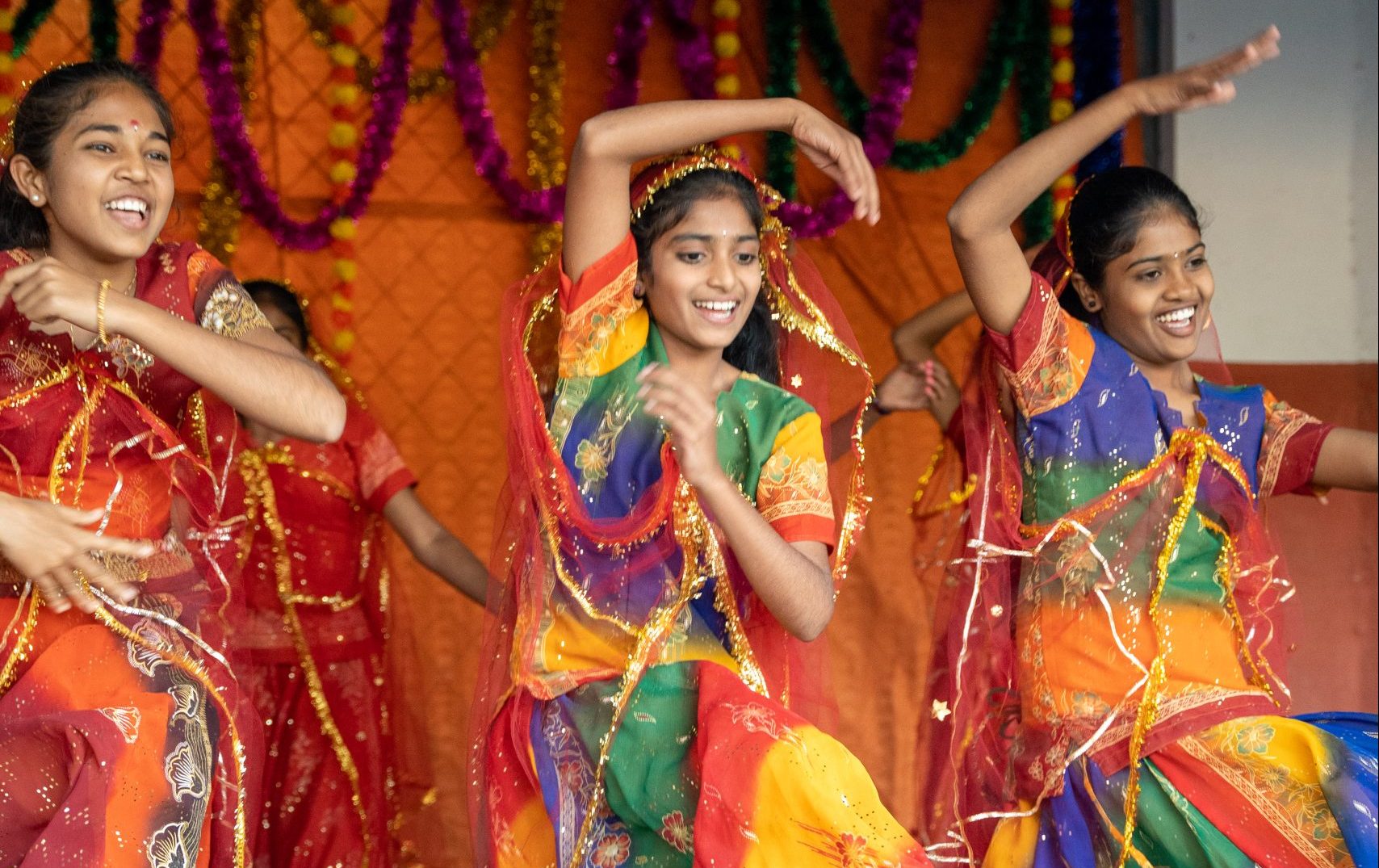A travel diary in the places where PIME’s long-distance support projects are active: between poverty and hospitality, meeting special people who are waiting for an opportunity to take flight
India is a country full of contradictions, colors and different shades. Each of the 29 states has its own identity that characterizes it. For this reason, despite it being my second trip, this land managed to surprise me.
With Matteo, head of the Mission Support Area of the PIME Center, and Jacopo, our video maker, we landed at Hyderabad airport on 21 January, where Father Vinay Kumar, the archdiocese’s remote support representative, was waiting for us. Two hours of sleep and the visit to the Fatima Matha School began immediately, where 32 children study. The pupils, who had decorated the school and the courtyard with garlands and flowers, sang and danced into which we were carried away to the sound of applause: it would have been only the beginning of our performances as dancers. We then visited another school and a hostel before discussing the prospects of the project with Father Vinay.
The next day Father Prasad Bala Marneni, head of long-distance sponsorship in the diocese of Nalgonda, came to pick us up and, after a traditional spicy breakfast and a two-hour drive, we arrived at his office, where a group of excited and a little intimidated, but ready to give generous smiles. We told them about our country and about the supporters in Italy, how much they are followed and fondly remembered by those who support their studies.
In the afternoon we moved to the village of Thipparthy, where Father Marneni lives with some of the children. We visited families, people who lack basic services such as running water or electricity, but who still wanted to offer us tea or coffee. To conclude the day, games and dances with the little ones, together with a dinner prepared with the same love as Italian grandmothers. After two days, Father Marneni accompanied us to Khammam, where we met Sister Pauline. It was also an opportunity for both sponsors of the sponsorship projects to get to know each other. Sister Pauline has been in office for a year, but she immediately took the boys and girls and their families to heart. Our journey continued to Eluru, where the PIME regional house in India is located and where we felt even more at home. We played cricket with the missionaries and the children and celebrated Republic Day together. We then visited a village inhabited by a small community affected by leprosy, still present in India.
During the six days in Eluru, accompanied by Father Bala Joji, treasurer of the regional house, we visited two other dioceses that have Child Sponsorship projects: Vijayawada and Guntur. Leaving Eluru, after a six-hour journey we reached Warangal, where the memory of Father Augusto Colombo and his good works are visible everywhere. Thanks to him, many schools have been built and isolated villages reached where the boys did not receive an education, a hospital has been built and this year the diocese has realized the missionary’s last dream: the faculty of medicine.
In Warangal, Father Martin Golamari organized a day in which many children and adolescents supported at a distance, with their families and teachers, gathered to meet us. There were more than 600 people. During these meetings, the desire of many girls to become engineers, doctors and computer scientists emerged, while the study of mathematics was favored by most of the children. Everyone felt a strong “hunger” to achieve a better future and life opportunities for themselves and their families. In fact, in India education is not yet a right guaranteed to everyone but a privilege for the wealthiest: those who belong to the lowest castes cannot pay school fees. Unfortunately, although castes were abolished in 1947, unofficially they still exist, especially in rural areas.
On February 3 we landed in Mumbai, the last leg of the journey. Even from the plane, an infinite expanse of slums was visible, houses made of cardboard and sheet metal leaning one on top of the other, as if to support each other. We were welcomed to Swarga Dwar (“Heaven’s Gate”), an ashram where people live, pray, work and serve former lepers who have been rejected, due to illness, by families and the community. On the evening of our arrival we prayed with them in the ecumenical chapel, in the center of which stands a pillar with the symbols of 12 religions.
From Swarga Dwar we reached the final destination by train: Everard Nagar, where the office that deals with Child Sponsorship projects and other social interventions in the center of Lok Seva Sangam is located. From there we moved to Bainganwaadi, a suburb of Mumbai, where the oldest and largest garbage dump in the city is located.
As soon as I got out of the car it was like getting punched in the stomach. We weren’t able to take many photos as we wandered through the tiny streets: we were enraptured by the smells, the noise and the barefoot children, some naked, walking among the rubbish. As I write, I think back to the words of my grandmother, when she told me about the misery that people lived during the war and I find myself reflecting that today there are still many who were born into poverty and have never stopped living there and we, who we are on the “right side” of the world, we often forget it. I stop, close my eyes, and in front of me I have again the boy who in Mumbai was trying to fly a plastic bag tied to a string, like a kite. This image reminds me why I chose to do this job and how together, brick by brick, it is possible and above all important to make a difference.
